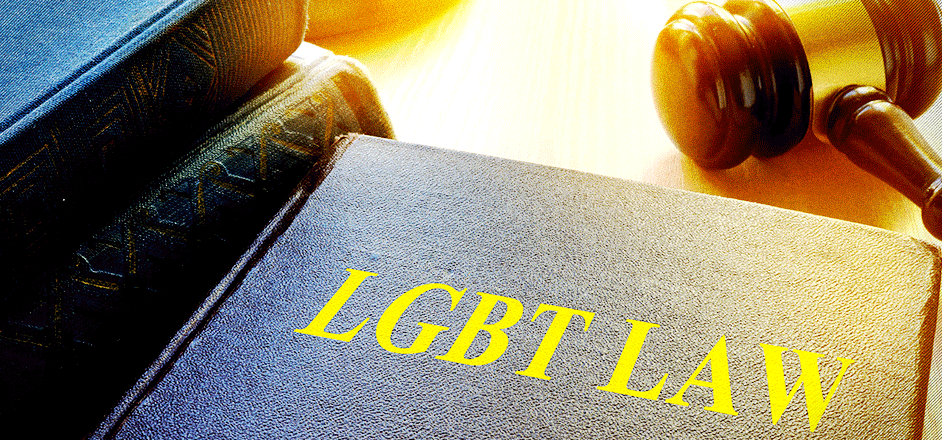The impact that overturning Roe has had with emboldening the Republican party to shove their puritanical ideologies down the throats of all Americans cannot be understated. The Supreme Court ruling has explicitly told the conservative faction of America that we can most definitely turn back the hands of time to the 60s—and by that, I mean the 1160s. Knowing this, the GOP has decided to ratchet up their attacks and have selected their next national target via legislation: the LGBTQ community and codifying the "Don't Say Gay" bill into federal law (DSGN). Feds beat states' rights in this political game of rock, paper, scissors, and given the liberal political leanings of the Centennial state, the LGBTQ community will be directly (and negatively) impacted if this law takes hold. So much so that lives may literally be lost.
A quick caveat: Yes, I know that as long as Biden is in office, the bill referenced in this article stands no chance of passage. But really, the introduction of it at this point is more symbolic of setting the stage for the GOP’s plans if they do take a supermajority in 2024. So, assuming the worst-case scenario comes true in two years …
The "Stop The Sexualization Of Children Act" was introduced in October 2022 by Mike Johnson, a Louisiana Republican, and 32 other GOP members of Congress. It would prohibit the use of federal funds to teach children about “sexually oriented material” as well as “any topic involving gender identity, gender dysphoria, transgenderism, sexual orientation, or related subjects.” The effects of such a law, if enacted, would be far-reaching since a range of institutions–with schools and libraries among them–receive public money. The bill also gives parents the ability to sue in federal court if their child is exposed to the barred material that is funded “in whole or in part” by federal funds.
Since the bill is predicated on verbiage that is vague/interpretive at best, you know that nothing good can come from it being codified—not for the teachers or the students. And beginning with the former, I give you the example of Casey Scott.
Florida middle school art teacher Casey Scott was used as an example of the power the Florida DSG law could wield a few weeks before its enactment—a test drive—when she was fired for discussing sexuality with her students in March. Scott, who is married to a man, told her students that she is pansexual, meaning that she’s attracted to all genders. She said LGBTQ students then began asking if they could create art expressing their own identities. She agreed and then hung the art on her classroom door. Scott said she was told by school officials in Lee County to remove the artwork. She said she was then sent home and fired over the phone. No suspension, and no official reviews; just pack up and get out. The Lee County School District said that Scott was fired because she "did not follow the state-mandated curriculum." The district also shared complaints from parents who were concerned about the conversation and the artwork.
Upset parents and/or "curriculum violation" are phrases that are beginning to sound incredibly familiar.
I know there are naysayers who disagree that this DSGN bill could EVER become law, thinking, "there's no way that if this bill became law, it could hold legal muster. There are federal laws already in place that protect LGBTQ members from discrimination. This new law would directly contradict what's already in place."
I think that's the point.
If the DSGN law passes, then upon the first teacher being fired for discussing their sexual identity (no matter the context), there will be a lawsuit. One that would snake its way to SCOTUS. There, the conservative majority would write the ruling in such a way to where the DSGN law would supersede any existing discrimination laws and therefore become the legal standard henceforth. It would be a complete decimation of LGBTQ rights federally.
Now, before continuing on to my second aforementioned example—the students—I must give a warning: it's going to get dark.
Currently, in Colorado, there are state laws explicitly requiring LGBTQ inclusion in state curricular standards. These would be erased. If gone, we could see a lot more dead LGBTQ youth as a result.
The 2019 Healthy Kids Colorado Survey found that 42.0% of students who identify as gay, lesbian, or bisexual reported seriously considering attempting suicide during the prior year, compared to 13.4% of students who identify as heterosexual. 20.7% of these students also reported attempting suicide at least once during the prior 12 months, compared to 5.4% of heterosexual students.
Along with this, the research provided by the Trevor Project (an LGBTQ crisis support center) shows us there is a direct relationship between LGBTQ students' widespread acceptance and its impact on rates of suicide. One of the major findings of the study was that LGBTQ youth who found their school to be LGBTQ-affirming reported lower rates of attempting suicide.
What resources those teens have in school would vanish.
While researching this article I kept remembering what my teenage sister-in-law said over the summer while here on vacation. She is a member of the LGBTQ community and one day I asked her why there are so many categories and subcategories when it comes to identifying oneself. Her answer chilled me. "Well, if you aren't something … then you're nothing."
Now, imagine that mindset combined with being unable to hear a single word of validation from those who you are supposed to admire most.
Again, I reiterate: nothing good can come from any form of any Don’t Say Gay legislation.


[…] of LGBTQ authors and millions of their readers will be silenced with the swipe of a pen. And having written about those horrors previously, I know how damaging that can […]